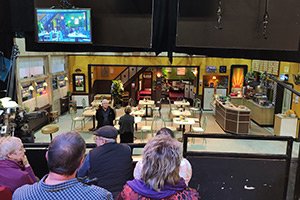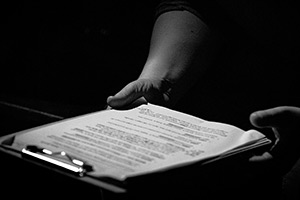Micheál Jacob on script editing, part 2
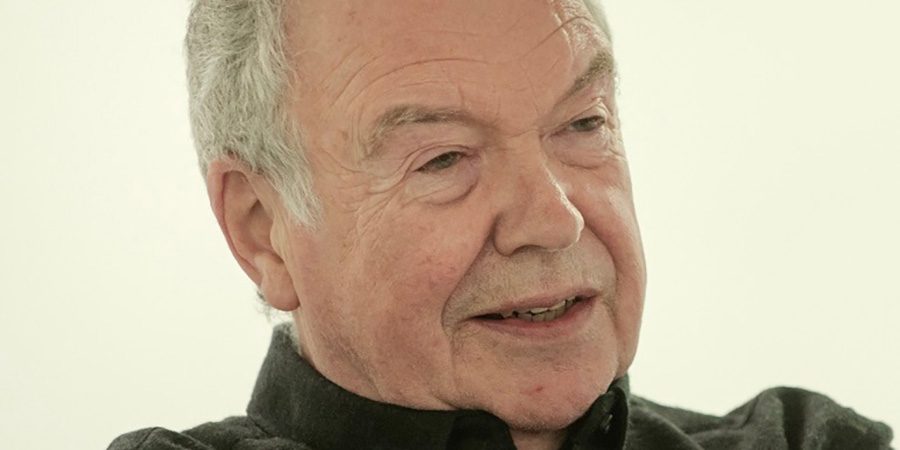
Micheál Jacob's long career as an executive producer and script editor encompasses a plethora of television and radio comedies, including Birds Of A Feather, Two Pints Of Lager And A Packet Of Crisps, Goodnight Sweetheart, My Family, Eyes Down, Thieves Like Us, The Smoking Room, Not For Turning and Dead Canny. Following on from part 1 of our interview, we continue our discussion of scripts.
Are there any particular mistakes you see repeatedly?
Cardboard characters who all speak in the same way and have no humanity. Lack of structure. Stories where nothing is at stake. Old ideas recycled. And setting a script in a world we've never seen before. If we haven't seen it before, there's a reason. I always remember a script set in adjoining public lavatories. The writer thought they were breaking new ground. The whiff came off the page.
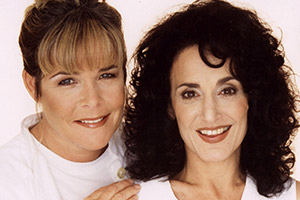
Writers can be quite mercurial creatures. Have you developed any particular techniques for dealing with that?
Just being sensitive and pleasant, really, seeing what they are trying to achieve and talking about how they might deliver their vision more effectively. And not imposing.
What does a writer need to succeed?
Talent, skill and determination. Talent is innate - writers either have it or they don't. Skill can be developed. Determination means sticking at it and not being discouraged by rejection, which happens to all writers at some point, even successful ones.
And then there's luck, coming up with the right idea at the right time. I've been involved in some excellent scripts which have never been produced because the time wasn't right or 'we're not looking for that kind of show at the moment'.
What happens when a script is picked up for production?
That's when things get tricky. Generally, the writer has been working with the script editor. When it comes to production there are other people to deal with. The writer and script editor share a vision, but then other people's visions come into play. They are seeing a script for the first time, and they have their own thoughts. The producer will have thoughts, the executive producer will have thoughts, the commissioner will have thoughts. Sometimes a director will have script notes that aren't to do with directing.
For a new writer - or even an established one - it's a lot to deal with. A friend who recently had a drama on one of the major streaming platforms was getting notes from six different people, some of them contradictory.
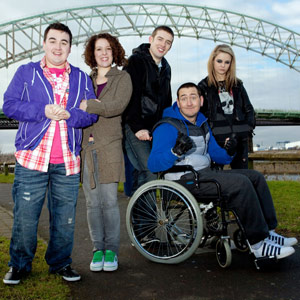
One of the problems is that everyone thinks they can write, and often people have a vision of the script that isn't the writer's vision. Sometimes lines will be suggested, sometimes new scenes...
There's not much that a script editor can do when it gets to that point, other than to mop the writer's brow and offer a sympathetic shoulder.
But a script editor can always argue back on a writers behalf. The script editor is really as close to the script as the writer is when it comes to production, and sometimes higher-ups can have quite random and thoughtless notes because they're not immersed in the script or have read it too quickly and not appreciated something.
Television used to be a writers' medium, but now it's very much an executive's medium, with scripts regarded as 'content' rather than artistic expression. But then it's 'the industry'. And individual voices are still in demand and still cut through.
Radio is much more friendly to writers - generally it's just them and their producer.
Do you have any further advice for our members who are (or want to be) writers - or, indeed, any advice for our members when they are asked to give notes on a script?
To writers I'd say study the market and study script technique. Pick the sort of show you want to write, watch some episodes and analyse how they work. How many characters, how many locations, how many scenes...
If you're going to give notes on a script, then be sensitive. It's the writer's work, not yours. Your job is to help the writer deliver what they want to deliver, not to impose your own ideas.
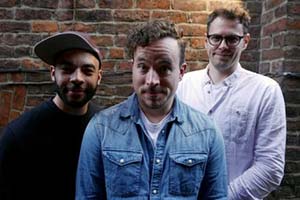
Thank you, Micheál. As a final question - you've been active in the comedy industry for a long time. The landscape has clearly changed a lot since you began your career. Do you think broadcast comedy is in good health? Is there any aspect of it you particularly like, or anything you think is missing?
Yes, it's a rather different landscape, as I've already said. One can be nostalgic, but there's no point because writers have to deal with the world as it is.
I suppose that broadcast comedy is actually in as good health as it ever was. We remember the good shows from the past, but not the bad ones, of which there were many.
I grew up on audience sitcom, which is a wonderful form. Nothing beats sitting in a production gallery hearing two hundred people laughing, though I produced an audience show where, if someone laughed, we all jumped because it was mainly silent. But, as we used to say, they'll laugh in the dub.
It's all single camera now, for economic reasons, but in single camera shows there's not the same imperative to be funny. A lot of comedy now feels more like comedy-drama, though it isn't very funny and it isn't very dramatic.
The traditional audience sitcom aimed at a ratio of three laughs per page. On The New Statesman, Rik Mayall demanded six laughs per page. More laughter would be a good thing.
Thanks again!
See also:
Micheál Jacob on treatments and pitches
This article is provided for free as part of BCG Pro.
Subscribe now for exclusive features, insight, learning materials, opportunities and other tools for the British comedy industry.


